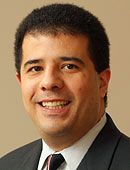1/29/2008
Analysis: Vague Traffic Laws Promote DiscriminationA detailed Vanderbilt Law Review article examines the effect of vague traffic laws on diluting the protections offered by the rule of law.

A University of Virginia law professor argues that reform is needed in our legal system to restore essential constitutional protections for motorists. Writing in the Vanderbilt Law Review, Kim Forde-Mazrui found after an exhaustive legal analysis that prohibiting police enforcement of the most minor of traffic violations would be one step that could help prevent discrimination. The author argued that legislatures often abdicate their responsibility by enacting vague laws which hand police the full discretion to decide what is and what is not criminal conduct.
"Vague laws, in effect, give police the authority to stop, interrogate, search, and arrest whomever they choose for any reason," Forde-Mazrui wrote.
As long as police can effect an arrest on any occasion, the Fourth Amendment protection against unreasonable searches and seizures disappears because the courts find searches valid so long as the initial arrest is valid. Equal protection of the law also disappears as the courts have rejected any consideration of a police officer's personal motivation during an arrest as irrelevant, so long as a law -- no matter how minor -- has been violated. This allows police to target, without any realistic risk of being held accountable, "racial minorities and other politically marginalized groups."
"For example, although black motorists may well minimize the risk of traffic stops by driving in strict compliance with the speed limit, the result is that blacks are effectively subject to a different speed limit than whites," Forde-Mazrui explained.
Forde-Mazrui's point goes beyond mere race. Young motorists, anyone driving with out-of-state license plates or driving an expensive -- or run down -- automobile can also find himself the target of unequal enforcement. Simply making laws more specific does not necessarily solve the problem. Often laws that contain highly precise definitions, such as speed limits or laws specifying a certain distance before which one must signal one's intent to turn, operate in practice just like vague laws. Forde-Mazrui cited a 2002 study from Maryland that found 92 percent of observed drivers violated the speed limit law by at least one mile per hour. In other words, at that particular location and time, an officer could have stopped nine out of ten drivers.
"Specific rules directed at a broad range of conduct, commonly engaged in by reasonable, law-abiding people, the violation of which creates little stigma or expectation of enforcement... can create an extremely broad degree of discretion..." Forde Mazrui wrote. "The predictable result is that enforcement officials will enforce the law in an unpredictable, arbitrary, and discriminatory manner.... Accordingly, the court's assurance that equal protection doctrine guards against discriminatory traffic enforcement rings hollow."
Forde-Mazrui recommended that legislators adopt laws reclaiming the legislative power that has been delegated to police and the courts. Such steps would, he argued, help re-balance the legal system and restore constitutional protections and the rule of law.
"Potential approaches include limiting the authority of police to exploit traffic laws for pretextual purposes, requiring the police to justify enforcement practices that have a discriminatory impact, requiring higher enforcement rates, and precluding enforcement of minor traffic violations," Forde-Mazrui concluded.
A full copy of the law review article is available in a 1mb PDF file at the source link below. I appeared in Volume 60 Issue 5 of the Vanderbilt Law Review in October 2007 and is provided with the permission of the author.


